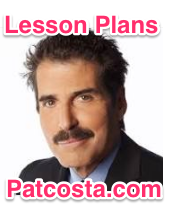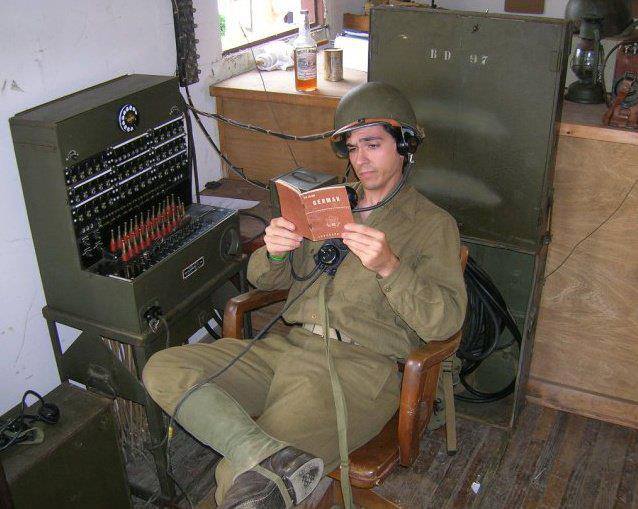Below are some links to websites that cover issues related to future development and growth for Columbus, Ohio
Category: Politics and Policy
When I was a teacher, I taught social studies for over a decade. I also picked up a Master’s in Political Science from Virginia Tech (Go Hokies!). As such, I’ve developed some opinions about different things that I want to share with you.
Below are my thoughts on a wide range of topics and interests.
Enjoy!
What’s Up With Rural America and Ideas to Fix It
Since the 2016 there has been an increased focus on the geographic divide: Urban vs Rural. While this divide is omnipresent throughout US History and occasionally bubbles to the top (anyone remember the clarion call of Raise Less Corn and More Hell?). The election of 2016 is one of these times. Rural America clearly is hurting and the 2016 election was a cry for help.
This will be a page to hold some resources, articles, pieces, and books about the urban rural divide and how to fix / policy solutions.
Escape Velocity: How Elite Communities are pulling away in the 21st century race for jobs, businesses, and human capital – pdf document that outlines how certain cities are outpacing the left-behind areas.
Tim Vilsack’s Reconnecting with With Rural America Article
The Politics of Resentment: Rural Consciousness in Wisconsin and the Rise of Scott Walker – book on how Scott Walker rose to power in WI.
Glass House: The 1% Economy and the Shattering of the All-American Town – book on how Wall Street Ruined one Ohio town.
Dreamland: The True Tale of America’s Opiate Epidemic – book on how opioids have wrecked large parts of America particularly in the heartland/rural sections.
Strangers in Their Own Land: Anger and Mourning on the American Right – book on how rural America feels left out.
Hillbilly Elegy: A Memoir of a Family and Culture in Crisis – book viewed through the struggles of America’s white working class and growing up in a poor rest belt town.
Paul Krugman’s hot take on how to reverse rural America’s decline.
Monica Potts op-ed on what the fight over a rural library says about Rural America. Basically, some communities and the families that make it up retreat inward (“take care of my own”) rather than working together to invest. This seems to dovetail with thesis about a decline in social trust.
David Brook’s piece on what Rural America can offer the rest of us.
Sarah Smarsh op piece that highlights an interesting trend of folks returning home to rural areas.
The Brooking Institution’s Piece on how the road to economic revival in the Heartland runs through older industrial cities
The Brooking Institution’s economic analysis on the heartland: Saving the Heartland – Place based politics in 21st Century America
The Greater Ohio Policy Center’s analysis on mid-sized Ohio cities and how they are doing: From Akron To Zanesville
A policy analysis by the Democratic party on how they can better serve the heartland: Hope from the Heartland
The Joint Economic Committee Democrats economic analysis on rural America: Investing in Rural America – Bringing Progress and Opportunity
Wonder why America is Polarized? This book called: Hidden Tribes – A Study of America’s Polarized Landscape can help you to understand.
Rural America in Decline – an info news piece by the New York Times that charts the population decline.
Rural America is Saving itself – a brief review of rural assets (like social capital) and how if combined well can work to arrest decline in rural communities.
Alienated America – basically an updated thesis of Robert Putnam’s Bowling Alone. Large parts of America have lost the social capital that can make a community happy and prosperous. For many it the was result of economic changes like “the factory closed” which has cascading effects like the diner where the community used to meet closing. The lack of social capital makes it difficult to develop relationships and build “little platoons” and accumulate power be it economic, social or political. It increases instability, deaths of despair, and broken families. Indeed, for many parts of America the dream is dead. For the Trump voter they come from places like this. This contrasts with other parts of America that are dynamic. They have strong community and local institutions that enhance the social capital.
The New Localism: How Cities Can Thrive in the Age of Populism – book on how localities (both small and large) can leverage assets to solve local problems, locally using a variety of local methods. Thomas Friedman wrote about this in his coverage of Lancaster, PA in Where American Politics Can Still Work: From the Bottom Up
Rural, Urban and Suburban commonalities: It is a lot more than you might think.
Balance of Payments – Rural America as Recipients of a disproportional amount of federal dollars. A study done by the Rockafeller Institute For Government.
How to Win Rural Votes: Anti-trust
John Stossel Lesson Plans and Worksheets

John Stossel Lesson Plans and Worksheets
I would often use John Stossel Lesson Plans and Worksheets in my government class as he highlights different aspects of government and highlights what the role of the government in society and economy should or should not be. These came as videos on a DVD but now can be found in YouTube or his site below.
You can find and order his videos off his website here: http://stosselintheclassroom.org/
I’ve also included some of his video guides below.
John Stossel Teacher Guide 2012
John Stossel Tacher Guide 2011
John Stossel Teacher Guide 2009
John Stossel Teacher Guide 2008
John Stossel Teacher Guide 2007
John Stossel Teacher Guide Best of
One of my favorite videos was Greed. Particularly, when discussing the role of the economy.
John Stossel Greed Lesson Plan
The video comes in 6 parts below. I’ve added it as a playlist on YouTube
Second Great Decoupling: Separating Students from Schools
Second Great Decoupling: Separating Students from Schools
The purpose of this article is to briefly describe education policy within a historical narrative
Decouple: to cause to become separated, disconnected, or divergent; uncouple.
The first Great Decoupling occurred around the turn of the last century when students were separated from their immediate community and as some argue their family. The origin of which were contained in the kernel of the Industrial Revolution and brought to froth in the post-Civil War business climate. Those original one-room school houses of an agrarian 1830s/1840s past were combined with adjacent and localized school communities in order to achieve maximum efficiency. Indeed, at one point in the US we had over 200,000 school districts (although some were a one-room, one school, school district)! Currently, we have about 15,000 school districts.
This first Great Decoupling was important and necessary as it prepared students to work in a factory setting. The preparation was so realistic it even included a bell which would ultimately mimic the changing of the factory shift. Students would be taught in an assembly-line fashion , expected to conform to rules, not question authority, and above all “produce” for a nascent superpower. This first Great Decoupling worked very well. It brought the US an increased standard-of-living, introduced waves of immigrants to democratic ideals, fought a Great Depression, won two World Wars, and brought down the Evil Empire.
However, by the mid-1970s cracks begin to appear. The Oil Embargo, cheaper airline travel, cable TV, the opening of China (predicated upon Mao’s death) and other foreign markets begun erode US factory dominance in two ways. Indeed, the movie the Deer Hunter (1977) opens-up with a nondescript yet in-decline Pennsylvania steel town.
- The factors helped charge-up globalization which put new competitive pressures on US manufacturing which they were unable to cope. After all, the world is the market NOT just the US.
- The new technologies helped people connect with each other from around the globe. This helped established improve relations, particularly those of in an business/economic sense.
In fact, US education had eroded so far in about 10 years that by 1983 the seminal report, A Nation At Risk was produced that identified:
declines in educational performance are in large part the result of disturbing inadequacies in the way the educational process itself is often conducted
The American Education system worked well for over 100 years until with in a 10-year time frame it no longer worked! The educational model that made the US a Superpower no longer fit!
Following the report, policies were put into place that sought “boost” educational achievement by mandating a rigorous testing regime. Various states experimented with “test till your blessed” programs that sought correct the “sins” of an educational model through high-stakes standardized testing policies. The various state programs become crystallized under the 2001 No Child Left Behind Act (NCLB) which federally mandated a testing program for all schools receiving government funds
Since NCLB, high-stakes testing regime as taken hold across all states (although some are beginning to reject it). These “test till your blessed” programs will not work because the model they are grafted to is broken. Elected leaders are touting a treatment for a symptom rather than a cure for a disease.
Nevertheless, a cure is not elusive!
Since the Great Recession there has been a trend towards the Second Great Decoupling. The second Great Decoupling relies on the technological advancement and investment in the 1990s which brought high-speed/wireless internet access to large swaths of America and the investments made by millennials in mobile internet via smartphones. Additionally, the Great Recession has placed financial difficulty on states, which have often turned to axing education budgets (education is often the state’s most costly service) in order to achieve a balanced state budget (without raising taxes, of course). School districts have responded in-kind by NOT hiring teachers (which increases class sizes) and NOT increasing pay/benefits (which drives potential candidates away) all the while continually to decree that pre-recession goals still be achieved, mandates met, and budgets maintained. It is truly a feat that in-spite of all odds, American teachers have stepped-up to the plate and delivered.
In the end though, the herculean efforts of American teachers can only do so much against the ruthlessness of economic efficiency and maximization, and perhaps that is for the best. Nothing gets a paradigm shift like a financial crisis. The second Great Decoupling will result in students being separated from their schools. After staff, capital or “operations” (such as buildings and buses and the money spent to maintain them) is the second largest expense for most districts. Districts under such economic pressure may decide to sell off school real-estate and in return provide lower-taxes (or at least a slow-down on tax increases) and guarantee online educational access via subsidies for internet access and/or district supplied computers. One could envision a lively insurance market to insure district computers (loaned out to students) against fraud, theft, and breakage.
In the second Great Decoupling students will be part of a virtual district in a virtual school in a virtual classroom. Teachers may be hired “at-will” with one-year contracts without benefits (mimicking those who are already part of the “freelance” economy) which may result in a further decline of the teacher profession. In such a model, districts may elect to “outsource” teaching to global teacher-temp agencies which may provided better quality services at a lower price. Students may find themselves with a math teacher from Kazakhstan, an English teacher from China, and a history teacher from Peru. One may find American Teachers leaving the US to teacher enclaves/communities in foreign countries with low-standards of living in order to continue to practice their “profession”.
Such a model may result in a win for the students as they experience a truly globalized education, a win for the district as they can provided cheaper services at better quality, and a win for educators who for once may actual be paid what they are worth (though, they may have to leave the country).
Salmonella in my Oregano?
Salmonella in my Oregano?
While purchasing some items at the local Food Lion, I ran across one of those haphazardly posted messages displayed only with a sad single piece of tape holding it up to a random post behind the cashier. It was a recall notice for McCormick Oregano. I was totally blown-away! What could possibly get in oregano that would cause it to be recalled?
Home Automation: 3 Considerations
Home Automation: 3 Considerations
A recent article on home automation caught my attention on the New Republic Website because my wife and I had considered some automation options but declined all of them (unless you include a programmable thermostat).
We grounded our considerations in history, current events, and current technology (or the lack thereof).
My Two Favorite Federal Laws

I am certain that very few people have favorite federal laws. After all, who wants to talk about federal legislation at a party (hint: I do). However, being a bit of a policy wonk and government guru, I enjoy reading and learning about federal laws. In fact, I actually have TWO federal laws that I consider to be my favorite. They both involve the stomach.
Talent
Talent
One of the books I’ve read was on the topic of Talent:
Talent is Overrated: What Really Separates World-Class Performers from Everybody Else
The book argues that talent is not innate but must be developed through a process called “deliberate practice”. Continue reading Talent
Penny Stocks Advice
Penny Stocks Advice: The one thing you need to know
During the mid-aughts, fresh out of college, young, single and flush with cash I decide to invest in penny stocks. Penny stocks typically trade for, you guessed it, in the pennies for each share. They are very risky, trade Over-the-Counter (that is the name of the stock ‘exchange’ where they trade in, sometimes it is referred as the ‘Pink Sheets’), and are lightly regulated. The lack of regulation makes them a susceptible for various fraud schemes such as the classic, ‘pump-and-dump’. However, if the right penny-stock begins to increase the margins for profit (on such a small investment) could be in the thousands!
Either way, I had invested about 500 dollars into a penny-stock called LOGO that was seeking to create a gay/lesbian themed TV network. I used to follow the stock and post in penny-stock forums and discuss the pitfalls, buy-points, sell-points of various penny-stocks (including LOGO). Thinking back on it, it wouldn’t surprise me if some of those people were plants, operating an online version of a “boiler-room”.
When I met with my financial adviser she gave me this look of horror and disgust. When I couldn’t explain to her why I bought Penny-Stocks or why I selected LOGO, her and I agreed to sell my penny-stocks and invest in mutual funds (which have since earned more money than my penny-stock).
Now, LOGO TV is actually a channel, though I am not sure whatever became of the penny-stock.
I write this post because Bloomberg Business has a great article that represents a ‘case-study’ on the perils and profits of penny-stocks.
Cynk was a company with 1 employee, no assets, and 0 revenue that became worth 6 billion dollars.
Cynk: The 6 Billion Dollar Penny Stock Debacle
The take-away from my experience with Penny-Stocks (and what one person in the aforementioned article calls them) is that they should be treated as Lottery-Picks. If you like investing and want to invest in penny-stocks than do so but do so with moderation (500 dollars was way too much) and with the understanding that you are properly getting taken for ride and will not win.
Diplomacy: Destroyer of Friends
Diplomacy or how to lose friendships
Diplomacy is a strategy board-game whereas you try to control supply depots, build armies and navies, and attempt to conquer Europe by controlling 18 depots. It takes place in pre-WW1 Europe with the Seven Great Powers: Ottoman Empire, Russia, England, Germany, Austria-Hungary[affectionately called AH], France, and Italy [I won’t give the nickname used to describe Italy as it is not appropriate].
What makes Diplomacy different is that in order to win you have to work together, collaborate, coordinate and build-trust with other nations in order for you to achieve. Implicitly, of course, is the notion that your “allies” could easily turn on you, stab you in the back, not support you, and all-around sabotage your actions.
This is way diplomacy is often described as a “friend-destroyer” because you play the game with your friends, use your friendship to build-trust, and then stab your friend in the back.
I was introduced to Diplomacy at a very young age. I recall hanging out in the basement of one of my friends playing the game and enjoying the political elements of it such as: strategy and alliance-building. Now that my friends and I have moved to various cities, we have migrated to diplomacy smart-phone apps such as: Droidippy to play the game.
Some links for Diplomacy Lovers:
Diplomacy Boardgame of the Alpha Nerd: A radio story sponsored by Grantland and broadcast on NPR. Takes place during the Diplomacy World Championship.

